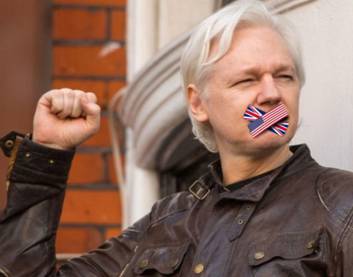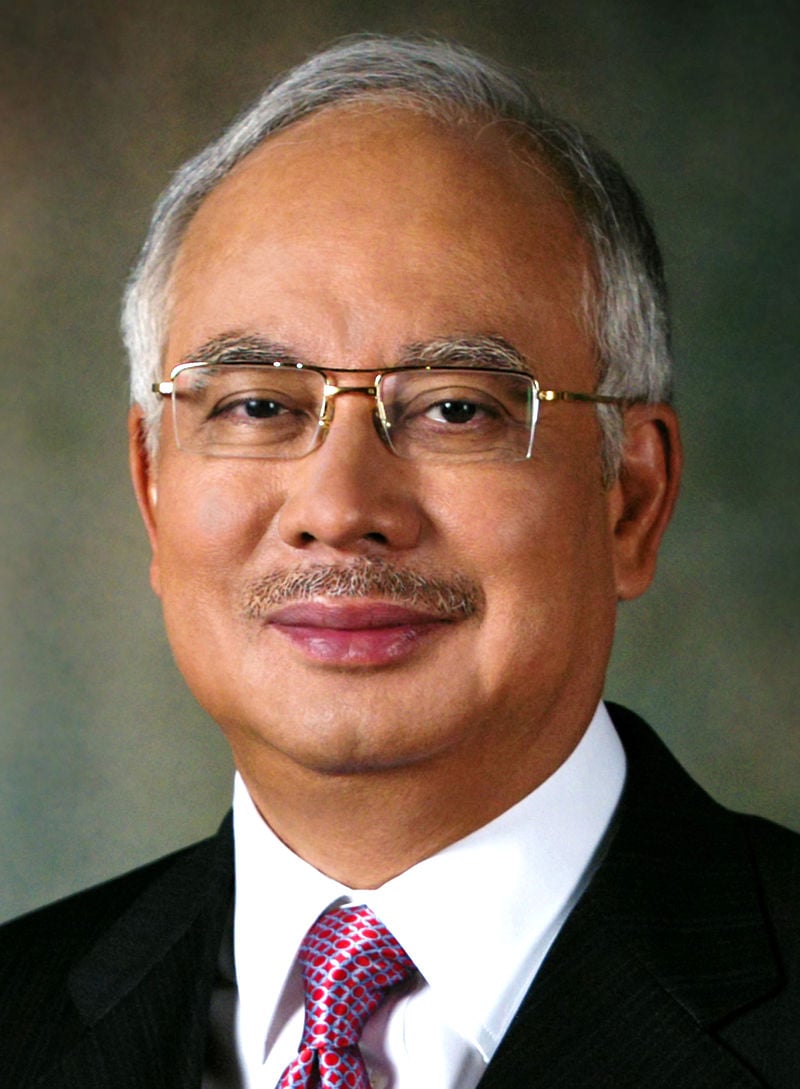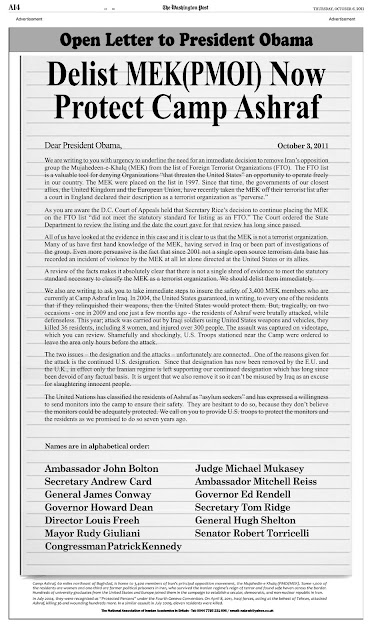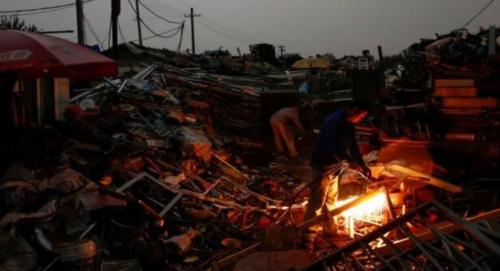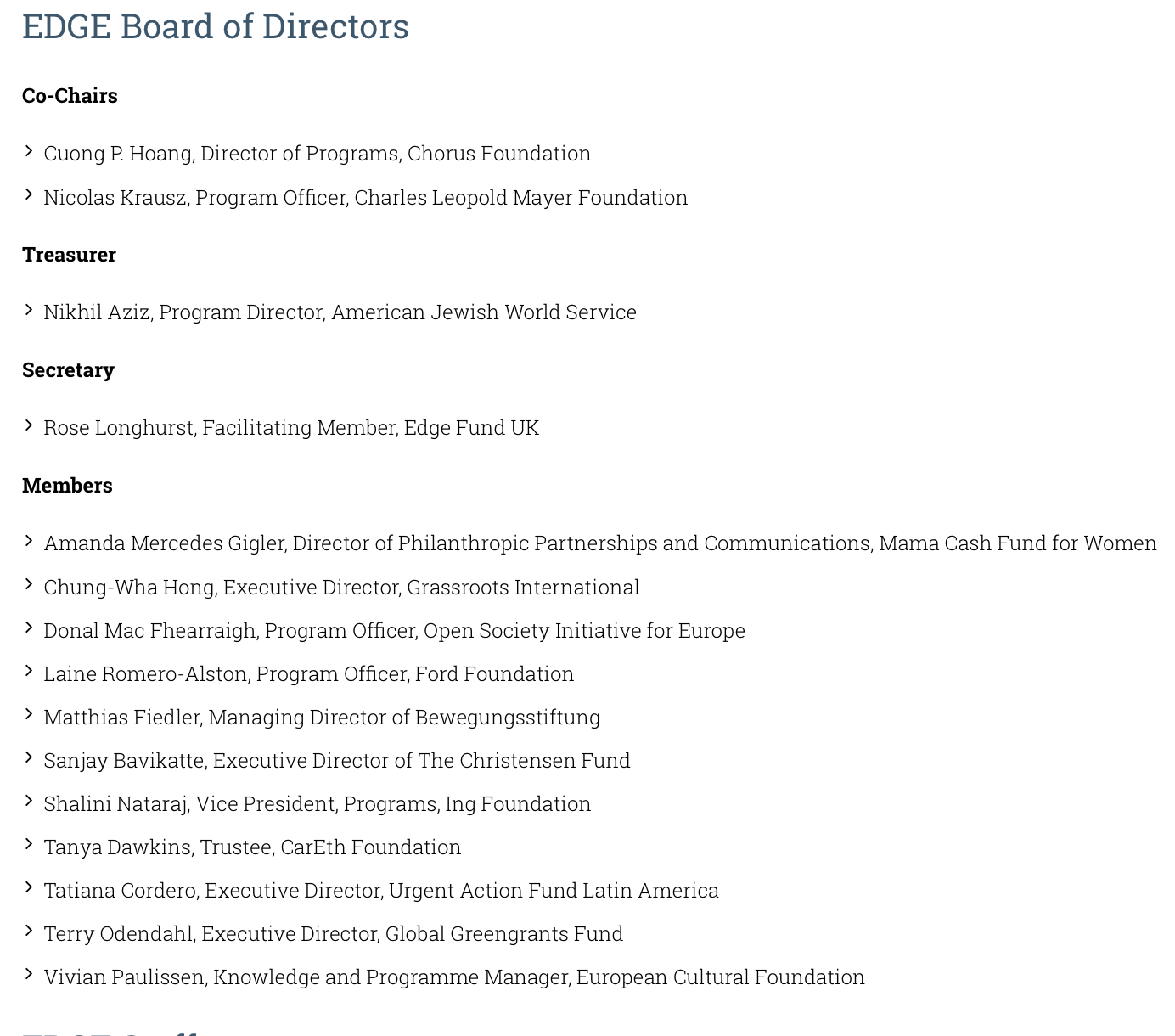“We can bomb the world to pieces, but we can’t bomb it into peace”
-Michael Franti
David and Goliath in an upside-down world
President Donald Trump doesn’t seem to share Georges Clemenceau’s view that “war is too serious a matter to be left to the military”. All the more so, perhaps, since the French statesman is also said to have coined the acerbic comment “America is the only nation in history which miraculously has gone directly from barbarism to decadence without the usual interval of civilization”.
Indeed, shortly after his inauguration as the 45th President of the United States, in January 2017, the American President bestowed additional authority upon the Pentagon and the CIA. In so doing, he yielded to the military’s pressure in the hope that this will help it defeat the so-called Islamic State more speedily and confront its other enemies more efficiently.
Trump’s decision quickly translated into a dramatic increase in drone strikes in Yemen, Afghanistan, Pakistan and Somalia—countries against which the U.S. is not officially engaged in a war—and only exacerbated the terribly bungled “War on Terror”. Unsurprisingly, it took Trump only seven months to surpass the number of civilian deaths that occurred during Obama’s entire eight-year presidency, according to non-profit monitoring group Airwars.Another set of documents supplied by a whistleblower and published by The Intercept in 2015, revealed the inner workings of this program in Afghanistan and concluded that these drone strikes caused the deaths of unintended targets nearly nine out of ten times. Heather Linebaugh, a US Army analyst who worked for this program, provided a damning testimony in this regard.
Moreover, on 13 April 2017, the U.S. Air Force dropped America’s most powerful non-nuclear bomb in its arsenal, nicknamed the “Mother of all bombs” (MOAB), on an ISIS cave complex situated in the Afghan Province of Nangarhar, a remote area bordering Pakistan.
While President Trump called the strike “another very, very successful mission”, Afghanistan’s former President and American ally, Hamid Karzai, declared “this is not the war on terror but the inhuman and most brutal misuse of our country as testing ground for new and dangerous weapons”. Also reacting to this bombing, two-time presidential candidate and Democratic member of the U.S. House of Representatives, Dennis Kucinich, asked “How, after a campaign where he repeatedly questioned America’s adventures in Iraq and Libya—including warning President Obama not to strike Syria after an alleged government use of poison gas—did President Trump get trapped in these wars? How, after questioning the workings of the Pentagon and the CIA, and being the victim of government leaks, does he permit leaks and disinformation to take us to the brink of war?” Kucinich then warned that “the bombing is accelerating in country after country and the death toll of innocent civilians continues to rise and while the resentment against America continues to grow, and unless we soon reverse course, forces will be unleashed globally which will be irretrievable”.
It is worth noting that this super bomb was used against one of the smallest militias the U.S. faces anywhere in the world. In effect, ISIS-Khorasan is estimated to count 700 fighters in Afghanistan, compared to 8,500 U.S. and 180,000 Afghan troops on the ground in this country today. Similarly, before combating this new foe, 430,000 Afghan and coalition troops have been unable to subdue their older common enemy, the Taliban, whose force was barely one twelfth as big; not to mention, of course, the immense mismatch between the opponents in terms of firepower and technology at their respective command.
And so, after 16 years of American presence in Afghanistan, the “graveyard of empires”, and nine months after Trump’s inauguration, the New York Times announced on its front page, “soon, American Embassy employees in Kabul will no longer take a Chinook helicopter ride to cross the street to a military base less than 100 yards outside the present Green Zone security district” ; a stark acknowledgement that even the city’s most highly-protected core zones have become too difficult to defend from Taliban attacks.
In fact, numerous careful studies of al-Qaeda and its different offspring, including ISIS, have shown that the United States and its allies are blindly following these terrorist organizations’ worldview and game plan. As is clearly stated, chiefly in a book attributed to Abu Bakr Naji entitled “Management of Savagery: The most Critical Stage Through Which the Islamic Nation Will Pass”, the goal is to “draw the West as deeply and actively as possible into the quagmire” and to “perpetually engage and enervate the United states and the West in a series of prolonged overseas ventures” in which they will undermine their own societies, expend their resources, and increase the level of violence, setting off a dynamic that William Roe Polk—an American specialist of high repute in Middle Eastern and insurgency history among others— has reviewed in length in one of his books. Polk reveals a pattern that has been replicated over and over throughout recent history. That is, invaders are naturally disliked by the invaded population, who disobey them, at the start in small ways, eliciting a forceful response on the part of the invader, which in turn increases opposition and popular support for resistance. The ensuing cycle of violence then escalates until the invading forces are obliged either to withdraw, or to resort to methods and means that amount to genocide in order to gain their ends.
This dynamic of extreme violence in which the U.S. and its allies have found themselves fully trapped has indeed entailed particularly high costs. Scott Atran, a well-known specialist on terrorist organizations, has calculated that “the 9/11 attacks cost between $400,000 and $500,000 to execute, whereas the military and security response by the U.S. and its allies is in the order of 10 million times that figure”. Atran drew the obvious conclusion that “on a strictly cost-benefit basis, this violent movement has been wildly successful, beyond even Bin laden’s original imagination, and is increasingly so. Herein lies the full measure of Jujitsu-style asymmetric warfare. After all, who could claim that we are better off than before, or that the overall danger is declining?” This record, he advises, “should inspire a radical change in our counter-strategies”.
Why America isn’t great anymore
The United States’ posture in the world is not what it used to be not so long ago. Its long-lasting political meddling and military adventures in the Arab and Muslim world, and its blind support for Israel have done it no favors. Much the contrary, they have certainly contributed, in no small measure, to deal irrevocable damage to the United States post-Cold War global primacy as well.
As former U.S. ambassador to Saudi Arabia, Chas W. Freeman Jr., recounted in 2014, “A while back, the United States set out to reconfigure the Middle East. The result is that the region and our position in it are both in shambles (…) If we are at all honest, we must admit that the deplorable state of affairs in the Middle East is a product not only of the dynamics of the region but also of a lapse in our capacity to think and act strategically”. For Freeman, this situation stems from the essential fact that the U.S. answered the end of the bipolar order with a mixture of denial, strategic incoherence, and inconstancy. And “false American assumptions and unrealistic U.S. objectives have therefore helped create the current mess in the Middle East”.
More recently, Chas Freeman reiterated his views by stating that “these fruitless and counterproductive wars have so far cost the United States at least $5.6 trillion (…) We have paid for our lurching to widening warfare in the Muslim world with a combination of borrowed money and disinvestment in domestic physical and human infrastructure. The result is not just the imposition of a crushing burden of debt on our posterity, but lost growth and declining U.S. economic competitiveness”. Furthermore, he lamented, Americans have become accustomed to life under surveillance and in an endless state of apprehension about acts of terrorism. Such an unusual condition has predictably eroded their liberties, aggrandized the presidency, reinforced “cowardly herd instincts in Congress”, and helped to impoverish the US middle-class “while enriching the military-industrial complex”. These, he concluded, are “structural alterations to the American republic and way of life that will affect both for decades”.
According to Philip Alston, the United Nations Special Rapporteur on extreme poverty and human rights, “the American Dream is rapidly becoming the American Illusion”, and “instead of realizing its founders’ admirable commitments, today’s United States has proved itself to be exceptional in far more problematic ways that are shockingly at odds with its immense wealth and its founding commitment to human rights”. These are some of the main findings Mr. Alston released in December 2017, after a two-week fact-finding mission to the U.S. His final report will be available in Spring 2018 and will be presented to the UN Human Rights Council in Geneva in June 2018.
| Today’s America is indeed a far cry from the model of Constitutional Republic the Founding Fathers dreamed of and brought forth. On July 4, 1900, the representatives of the Democratic party of the United States assembled in National Convention, on the Anniversary of the adoption of the Declaration of Independence. They issued a Platform in which they reaffirmed their faith in the “immortal proclamation of the inalienable rights of man” and their “allegiance to the Constitution framed in harmony therewith by the fathers of the Republic”. Among other principles reiterated: “We declare again that all governments instituted among men derive their just powers from the consent of the governed” and “that to impose upon any people a government of force is to substitute the methods of imperialism for those of a republic” ; “We are in favor of extending the Republic’s influence among the nations, but we believe that that influence should be extended not by force and violence, but through the persuasive power of a high and honorable example” ; “We oppose militarism. It means conquest abroad and intimidation and oppression at home. It means the strong arm which has ever been fatal to free institutions. It is what millions of our citizens have fled from in Europe. It will impose upon our peace loving people a large standing army and unnecessary burden of taxation, and will be a constant menace to their liberties” ; and “We assert that no nation can long endure half republic and half empire, and we warn the American people that imperialism abroad will lead quickly and inevitably to despotism at home”.Who in the world, and even in America itself, would trust a reaffirmation of this kind were it to be proclaimed today by President Donald Trump on behalf of the American people? |
Nobody explained this state of affairs more elegantly than a fictional character in an HBO television series called “The Newsroom”. In the opening sequence, a TV news anchor finds himself on a journalism panel. And when a student in the audience asks, “Can you say why America is the greatest country in the world?” the anchor snaps “America isn’t the greatest country” and goes on to deliver a speech about why. He tells the student “just in case you accidentally wander into a voting one day, there are some things you should know. One of them is: there’s absolutely no evidence to support the statement that we’re the greatest country in the world. We’re 7th in literacy, 27th in math, 22nd in science, 49th in life expectancy, 178th in infant mortality, 3rd in median household income, number 4 in labor force and number 4 in exports. We lead the world in only three categories: number of incarcerated citizens per capita, number of adults who believe angels are real and defense spending, where we spend more than the next 26 countries combined, 25 of whom are allies. Now, none of this is the fault of a 20 year-old college student, but you, nonetheless, are, without a doubt, a member of the worst period generation period ever periods”.
And after pausing for a while, the news anchor adds “It sure used to be. We stood up for what was right. We fought for moral reasons. We passed laws, struck down laws, for moral reasons. We waged wars on poverty, not on poor people. We sacrificed, we cared about our neighbors, we put our money where our mouths were and we never beat our chest. We built great, big things, made ungodly technological advances, explored the universe, cured diseases and we cultivated the world’s greatest artists and the world’s greatest economy. We reached for the stars, acted like men. We aspired to intelligence, we didn’t belittle it. It didn’t make us feel inferior. We didn’t identify ourselves by who we voted for in the last election and we didn’t scare so easy. We were able to be all these things and do all these things because we were informed… by great men, men who were revered. First step in solving any problem is recognizing there is one. America is not the greatest country in the world anymore”.
So much so that a WIN/Gallup International survey conducted in 65 countries found that for the 66,000 people polled, “The United States is the greatest threat to world peace”.
The Pentagon answers the age-old question “Is America in decline?”
Ever since Ibn Khaldun, the great Arab historiographer and historian—acknowledged as the forerunner of the modern disciplines of historiography, sociology, economics, and demography—laid the foundations for its study, the rise and fall of civilizations, empires, and nations, has been a favorite theme among past and contemporary historians. And just as human beings, nations too have life-cycles, passing from youth to maturity to old age and death. So far, there has been no exception to this rule.
U.S. Secretary of State Dean Gooderham Acheson was known to have played an essential part in writing the Truman Doctrine whose stated purpose was to counter Soviet geopolitical expansion during the Cold War. The Doctrine then became the foundation of U.S. foreign policy, and led to the establishment, on 4 April 1949, of NATO, a military alliance that is still in effect today with 29 member states. Acheson is also known for having said in 1962 that “Great Britain has lost an Empire and has not yet found a role”.
Perhaps the same can be said today of the United States in light of the Trump administration’s incoherent, if not chaotic foreign policy. Paradoxically, the use of the slogan “Make America great again” during the 2016 presidential campaign only reinforces this claim, since the phrase—which has been regularly used by both Republican and Democrat politicians following its first coinage by Ronald Reagan in 1980—is a distant cousin of the “Make Britain Great Again” slogan which dates back to the 19th century, when it was used by the British Conservative politician Disraeli. Clearly, both the old British version and its modern American equivalent refer to the notion of a lost “greatness”, or one to regain.
According to The American Conservative , since the early 2000’s there has been an ongoing conversation among scholars, policymakers, and members of the broader American foreign policy establishment about whether U.S. power is in decline. But the question actually extends back to the 1980s, with the publication of Yale historian Paul Kennedy’s The Rise and Fall of the Great Powers and other important books on the subject by scholars David Calleo and Robert Gilpin. Even though the controversy surrounding decline dissipated when the Soviet Union imploded and Japan’s economic bubble burst, it “remained dormant through the ‘unipolar moment’ of the 1990s but was rekindled with China’s rapid great-power emergence in the early 2000’s”, and the resulting shift of world geopolitical and economic power from West to East.
If we are to believe French historian Pierre Melandri, however, the issue of American decline started well before the publication of Paul Kennedy’s immensely successful book in 1987, the very year when, for the first time since 1917, the U.S. lost its status as the largest creditor nation in the world. As early as 1973, he indicated, a Japanese Prime Minister had already diagnosed such a process of decline when he observed that “the United States is no longer the Sun surrounded by planets, it is one planet among others”.
Back in 2002, Andrew J. Bacevich concluded his book, written in the aftermath of 9/11, with a fundamental observation. He said that the question that urgently demanded attention and that Americans can longer afford to dodge is not whether the United States has become an imperial power, but what sort of empire they intend theirs to be. Because for policymakers to persist in pretending otherwise, that is “to indulge in myths of American innocence or fantasies about unlocking the secrets of history” is to increase the likelihood that the answers they come up with will be wrong. That way “lies not just the demise of the American empire but great danger for what used to be known as the American republic”.
In 2011, a blogger by the name of Danios reproduced a year-by-year timeline of America’s wars, which revealed that since the United States was founded in 1776, it has been at war during 214 out of her 235 calendar years of existence. In other words, there were only 21 calendar years in which the U.S. did not wage any wars, and the only time the U.S. went five years without war (1935-40) was during the isolationist period of the Great Depression!
Away from the blogosphere, an editorial of The New York Times asserted that the United States has been at war continuously since the attacks of 9/11 and now has just over 240,000 active-duty and reserve troops in at least 172 countries and territories. It concluded that
“Senators who balk at paying for health care and the basic diplomatic missions of the State Department approved a $700 billion defense budget for 2017-18, far more than Mr. Trump even requested. Whether this largess will continue is unclear. But the larger question involves the American public and how many new military adventures, if any, it is prepared to tolerate”.
In the same vein, Richard N. Haas, the president of the Council of Foreign Relations—often described as the U.S. most influential foreign policy think tank—argued in his best-selling book that the rules, the policies, and institutions that have guided the world since World War II have largely run their course in a world “in disarray” which the U.S. is unable to shape in its image and interests. Haas thinks that the U.S. remains the greatest country in such a world, but its foreign policy has at times made matters worse—both by what America has done and by what is has failed to do.
A similar advice, or rather warning, has been given by no other powerful American conservative voice than Robert Kagan. In a Brookings article, he affirmed that “the liberal world order established in the aftermath of World War II may be coming to an end, challenged by forces both without and within”. He concluded by saying that
“if the next president governs as he ran, which is to say if he pursues a course designed to secure only America’s narrow interests; focuses chiefly on international terrorism—the least of the challenges to the present world order (…) then the collapse of the world order, with all that entails, may not be far off”.
Most significantly, in June 2017, a Pentagon study was released and caused rivers of ink to flow, both in the U.S. and overseas. It is worth noting that the commissioning and preparation of this report began in June 2016, six months before the end of the Obama administration, and was completed in April 2017, four months into the Trump administration. It required and involved extensive consultations with officials across the Pentagon and a handful of American think-tanks of a somewhat neoconservative persuasion.
Among the report’s most stunning conclusions are : “the status quo that was hatched and nurtured by US strategists after World War II and has for decades been the principal ‘beat’ for DoD is not merely fraying but may, in fact, be collapsing. Consequently, the United States’ role in and approach to the world may be fundamentally changing as well”; the “volatile restructuring of international security affairs appears increasingly inhospitable to unchallenged American leadership”. Another important conclusion is that the report’s authors agree with the pronouncement of British Prime Minister Theresa May in her speech in Philadelphia, six days after the inauguration of Donald Trump: “The days of Britain and America intervening in sovereign countries in an attempt to remake the world in our own image are over (…) the UK will only intervene where there are British national interests”.
This extraordinary report seems to have sounded the death knell of the US-led dubious “coalitions of the willing”, ushering in an irreversible post-imperium era.
After empire: towards a collective grand strategy of “Great Convergence”?
If we are to be realistic, there’s no way we can deny the facts, the whys and the wherefores of our fast-changing world. Old and new global empires are no more, youthful nations are rising, and ordinary people are getting more and more empowered.
But how did this unprecedented reality come into being? How is it that once-powerful states, institutions, corporations, interest groups, and political parties and leaders are finding it increasingly harder to defend their redoubts, let alone impose their agendas? And if today’s world is really inexorably moving from the tutelage of the sole superpower—America—and no other great power is willing or able to step in to lead it, then whose world will it be? And, most importantly, how can this sui generis “global village” best attend to and manage not only rising transnational threats and challenges, but opportunities as well?
Joseph Nye wrote a comprehensive analysis about power and its exercise during the last five centuries and up to a recent past. He pointed out that the traditional markers of power have so far been understood as the edge gained by great empires and nations, thanks principally to such factors as control of colonies, trade and finance, larger populations, primacy in Industrial Revolution and mastery of sea lanes, conventional and nuclear weapons, and numbers of men under arms. But the global information age of the 21st century, he says, is quickly rendering these measures obsolete, hence remapping power relationships. Two main power shifts are occurring: a power transition among states, and a power diffusion away from all states to nonstate actors. Nye concluded his study by affirming that the United States will need a strategy to cope with the “rise of the rest”—among both state and nonstate actors. It will need “a smart power strategy and narrative that stress alliances, institutions, and networks that are responsive to the new context of global information age. In short, for success in the twenty-first century, the United States will need to rediscover how to be a smart power”.
Delving deeper in the changing nature of power in this century, Moisés Naím observes that power is losing its value, since it has become “easier to get, harder to use and easier to lose”. It no longer buys as much as it did in the past, and battles to get it are yielding diminishing returns. As a result, power is spreading, and long-established, big players are increasingly being challenged by newer and smaller ones. It is shifting “from brawn to brains, from north to south and west to east, from old corporate behemoths to agile start-ups, from entrenched dictators to people in town squares and cyberspace”. In reality, Naím insists, power is decaying. One of the most convincing arguments he gives to demonstrate how the exercise of power has changed is in the realm of armed conflicts. Adapting a Churchillian turn of phrase, Naím says that “never in the field of human conflict have so few had the potential to do so much to so many at so little cost”. Thus, the “micropowers, while seldom winning are making life harder for the megaplayers”, by denying them “victory” in the increasing number of asymmetric conflicts, also known as fourth-generation wars.
For his part, challenging the view shared by most Western strategists—who recognize that the dominance of the West is on the wane, but are nonetheless confident that its founding ideas, such as democracy, capitalism, and secular nationalism, will continue to spread, ensuring that the Western order will outlast its primacy—Charles Kupchan argues that the world is headed for political and ideological diversity. Whereby, emerging powers will “neither defer to the West’s lead nor converge toward the Western way”. The reason for such a claim is that “the ascent of the West was the product of social and economic conditions unique to Europe and the United States”. And as other nations rise, Kupchan further explains, they are “following their own paths to modernity and embracing their own conceptions of domestic and international order”. He then draws the conclusion that the Western order will not be displaced by a new great power or dominant political model, nor will the 21st century belong to America, China, Asia, or anyone else. It will be “no one’s world (and) for the first time in history, an interdependent world will be without a center of gravity or global guardian”. This situation will require a strategy for striking a historic bargain between the West and the rising rest by “fashioning a new consensus on issues of legitimacy, sovereignty, and governance”.
Kupchan’s perspective is widely shared by Kishore Mahbubani, a much-respected Singaporean writer, professor and diplomat. In one of his books, he asserts that we are becoming more integrated and interconnected, and thus “the potential for a peaceful new global civilization is evolving before our eyes almost unnoticed”. Yet, he argues that challenges remain, and a number of major geopolitical fault lines remain to be resolved. For that to materialize, Mahbubani is of the opinion that: policymakers all over the world must change their preconceptions and accept that we live in one world; national interests must be balanced with global interests; the U.S. and Europe must cede some power (including within the IMF, the World Bank, and the UN Security Council); China and India, Africa and the Islamic world must be integrated; and the world order must be reconstructed.
For those and many other eminent authors and commentators, the “international community” has no better and wiser choice than to embark on a life-saving journey from “empire to community”. This is what Amitai Etzioni advocated, arguing that a “clash of civilizations” can be avoided, and that the new world order need not look America. Because, he contends, “Eastern values, including spirituality and moderate Islam, have a legitimate place in the evolving global public philosophy”.
Also addressing this issue in a lecture, Prof. Edward Said observed that
“the truly weakest part of the clash of cultures and civilizations thesis is the rigid separation assumed between them despite the overwhelming evidence that today’s world is, in fact, a world of mixtures, of migrations and of crossings over, of boundaries traversed. One of the major crises affecting countries like France, Britain and the U.S. has been brought about by the realization, now dawning everywhere, that no culture or society is purely one thing. Sizeable minorities, North Africans in France, the African Caribbean, and Indian populations in Britain, Asian and African elements in this country (i.e. America), dispute the idea that civilization, that prided themselves on being homogeneous can continue to do so. There are no insulated cultures or civilizations. Any attempt made to separate them into the watertight compartments alleged by Huntington and his ilk does damage to their variety, their diversity, their sheer complexity of elements, their radical hybridity. The more insistent we are on the separation of the cultures, the more inaccurate we are about ourselves and about others. The notion of an exclusionary civilization is to my way of thinking an impossible one”.
Prof. Said then asked what he considered as the “real question”, that is “whether in the end we want to work for civilizations that are separate or whether we should be taking the more integrative but perhaps more difficult path which is to try to see them as making one vast whole, whose exact contours are impossible for any person to grasp, but whose certain existence we can intuit and feel and study”. He concluded his lecture by quoting some lines by the great poet, author and politician from Martinique Aimé Césaire “the work of man is only just beginning and it remains to conquer all the violence entrenched in the recesses of our passion and no race possess the monopoly of beauty, of intelligence, of force, and there’s a place for all at the rendez-vous of victory”.
This is precisely the main topic that we shall address in a forthcoming analysis.
This article was originally published on The Saker
Notes:
1. Algerian researcher in international relations, author of the book “L’Orient et l’Occident à l’heure d’un nouveau Sykes-Picot” (“The Orient and the Occident in time of a new Sykes-Picot”), Editions Alem El Afkar, Algiers, 2014: downloadable free of charge, by clicking on the following links:http://algerienetwork.com/blog/lorient-et-loccident-a-lheure-dun-nouveau-sykes-picot-par-amir-nour/ (French)
http://algerienetwork.com/blog/العالم-العربي-على-موعد-مع-سايكس-بيكو-ج/ (Arabic) ↑
2. From Michael Franti & Spearhead’s song “Bomb the World”: http://youtu.be/ICL-40nkOPA ↑
3. Read Newsweek’s article: http://www.newsweek.com/trump-has-already-killed-more-civilians-obama-us-fight-against-isis-653564 ↑
4. Read The Intercept’s “The Drone Papers”: http://theintercept.com/drone-papers/ ↑
5. Heather Linebaugh, “I worked on the US drone program. The public should know what really goes on”, The Guardian, 29 Dec. 2013: https://www.theguardian.com/commentisfree/2013/dec/29/drones-us-military ↑
6. Read the opinion entitled “Dennis Kucinich: The ‘Mother of All Bombs’ is actually the mother of all warmongering”, Fox News, 14 April, 2017. ↑
7. Rod Nordland, “U.S. Expands Kabul Security Zone, Digging In For Next Decade”, The NYT, 16 Sept., 2017. ↑
8. William R. Polk, “Violent politics: A history of Insurgency, Terrorism, and Guerilla War, From the American Revolution to Iraq”, Harper Perennial, 2008. ↑
9. Besides UN General Assembly vote (128 in favor, 9 against, 35 abstentions) considering Donald Trump‘s declaration of Jerusalem as Israel’s capital “null and void” (read The Guardian’s article https://www.theguardian.com/world/2017/dec/21/united-nations-un-vote-donald-trump-jerusalem-israel), a Gallup International Association (GIA) opinion poll, conducted in December 2017 in 24 countries, revealed a widespread disagreement with the US President’s decision: more than two in three (71%) disagree with the proposal (59% strongly). Commenting on this survey, GIA’s President Kancho Stoychev said: “It’s rare for an opinion survey to register such unanimity on a single issue which indicates a deep pain among the Muslim world from the Middle East to Far Asia. But the overall reaction to the Trump decision is also predominantly negative in Europe. It seems that decades of trust in the balancing role of US diplomacy are evaporating.” ↑
10. See “Obama’s Foreign Policy and the Future of the Middle East”, 21 July 2014. ↑
11. Chas W. Freeman, “The Middle East in the New World Disorder”, 11 December, 2017. ↑
12. As of November 2017, the outstanding U.S. public debt stood at around $20.59 trillion. The U.S. ranked first in the world. ↑
13. Read http://www.ohchr.org/EN/NewsEvents/Pages/DisplayNews.aspx?NewsID=22546&LangID=E ↑
14. To read the Platform: http://www.presidency.uscb.edu/edu/ws/?pid=29587.Home ↑
15. Watch the video entitled “A Great Speech About Why America Isn’t Great Anymore”:https://www.youtube.com/watch?feature=share&v=q49NOyJ8fNA&app=desktop ↑
16. Read in the New York Post, 5 January 2014. ↑
17. British historian Arnold J. Toynbee called Ibn khaldun’s “Muqaddimah” or “Prolegomena” (Introduction)—which covers world history of humanity up to the author’s time, and addresses the question of why nations rise to power and what causes their decline— “a philosophy of history which is undoubtedly the greatest work of its kind that has ever yet been created by any mind in any time or place.” [Source: Encyclopædia Britannica, 15th ed., vol. 9, p. 148]. ↑
18. Christopher Layne, “Is the United States in Decline?”, The American Conservative, August 8, 2017.↑
19. Pierre Melandri, “La fin de l’empire américain?” (The end of the American Empire ?), in “La fin des empires” (The end of Empires), sous la direction de Patrice Guenniffey & Thierry Lentz, Le Figaro Histoire/Perrin, Paris, 2016. ↑
20. Andrew J. Bacevich, “American Empire: The Realities and the Consequences of U.S. Diplomacy”, Harvard University Press, 2002. ↑
21. See “America Has Been At War 93% of the Time”: http://www.washingtonsblog.com/2015/02/america-war-93-time-222-239-years-since-1776.html ↑
22. Read “America’s Forever Wars”, The New York Times, October 22, 2017. ↑
23. Richard Haas, “A World in Disarray: American Foreign Policy and the Crisis of the Old Order”, Penguin Press, 2017. See: https://www.cfr.org/book/world-disarray ↑
24. Robert Kagan, “The Twilight of the Liberal World Order”, Brookings, January 24, 2017. ↑
25. Read “At Our Own Peril : DoD Risk Assessment in a Post-Primacy World”: https://ssi.armywarcollege.edu/pubs/display.cfm?pubID=1358 ↑
26. Read the official transcript of the speech on https://www.gov.uk/government/speeches/prime-ministers-speech-to-the-republican-party-conference-2017, 26 January, 2017. ↑
27. Joseph S. Nye, “The Future of Power”, PublicAffairs, New York, 2011. ↑
28. Moisés Naím , “The End of Power”, Basic Books, New York, 2013. ↑
29. Charles A. Kupchan, “No One’s World: The West, the Rising Rest and the Coming Global Turn”, Oxford University Books, 2012. ↑
30. Kishore Mahbubani, “The Great Convergence: Asia, the West, and the Logic of One World”, PublicAffairs, 2013. ↑
31. Amitai Etzioni, “From Empire to Community”, Pelgrave Macmillan, 2004. ↑
32. Edward Said, “ The Myth of ‘The Clash of Civilizations’ ”, Media Education Foundation, 1999; To read the transcript: http://www.mediaed.org/transcripts/Edward-Said-The-Myth-of-Clash-Civilizations-Transcript.pdf ↑


